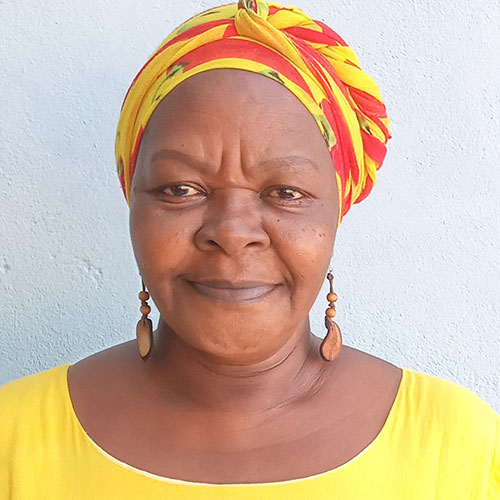Exhibition in Rio de Janeiro showcases the trajectory of the LGBTQIA+ movement
In the 30 years of Grupo Arco-Íris, the exhibition Amor e Luta visits the past of great names in the LGBTQIA+ community
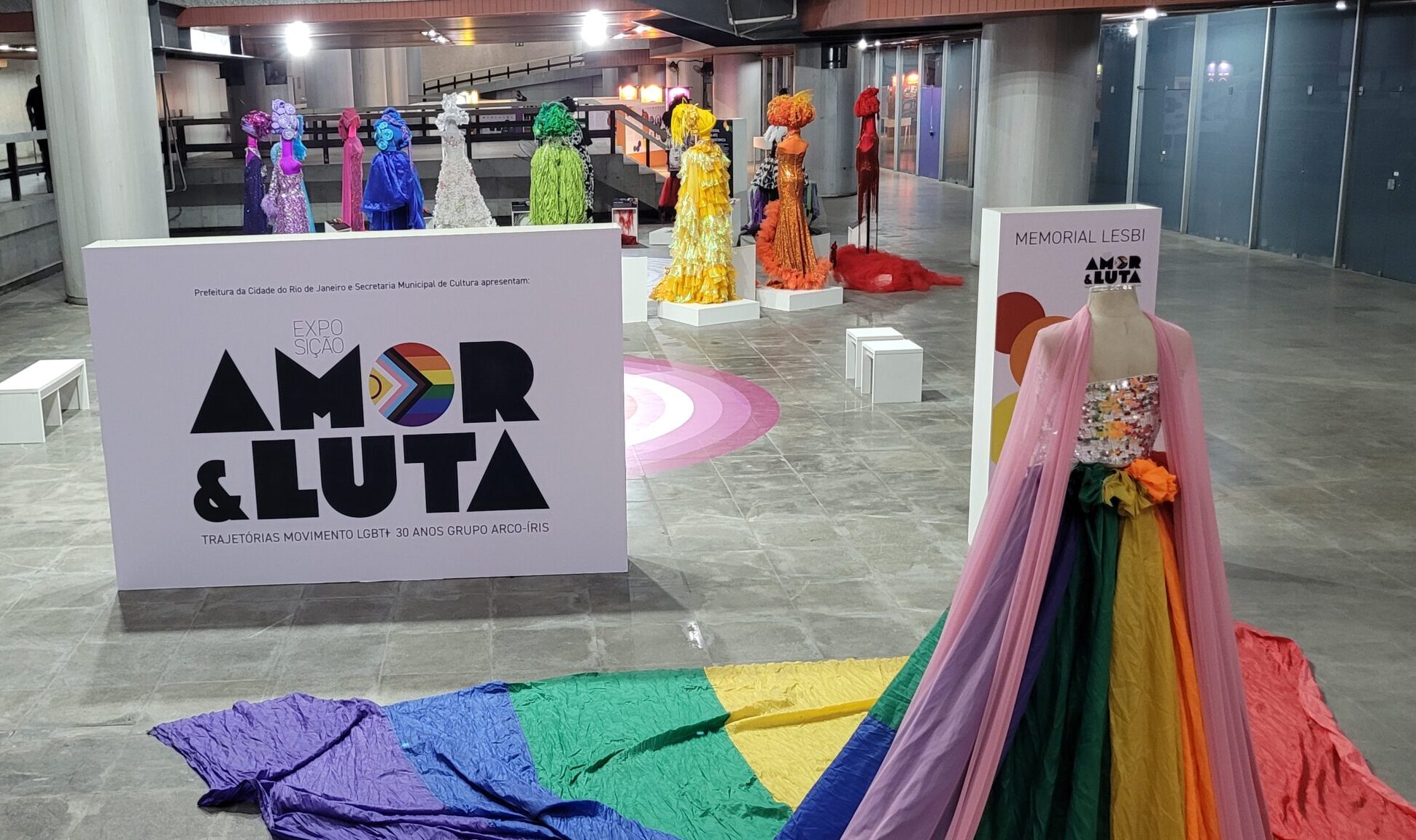

The Arco-Íris LGBTQIA+ Citizenship Group has just turned 30 years old. The date is being celebrated with the exhibition Amor e Luta (Love and Struggle) and, in addition to celebrating its anniversary, the group was certified by the Brazilian Institute of Museums, IBRAM, as a point of social memory.
This recognition is given to entities or collectives across the country that develop projects to promote the material and immaterial heritage of the community in which they are located.
Representation of the Love and Struggle exhibition
The exhibition draws a timeline through illustrative panels, photos, clothing items and lots of color that presents the history of the LGBTQIA+ movement and the Arco-Íris Group, which dedicates its existence to defending diversity and human rights.
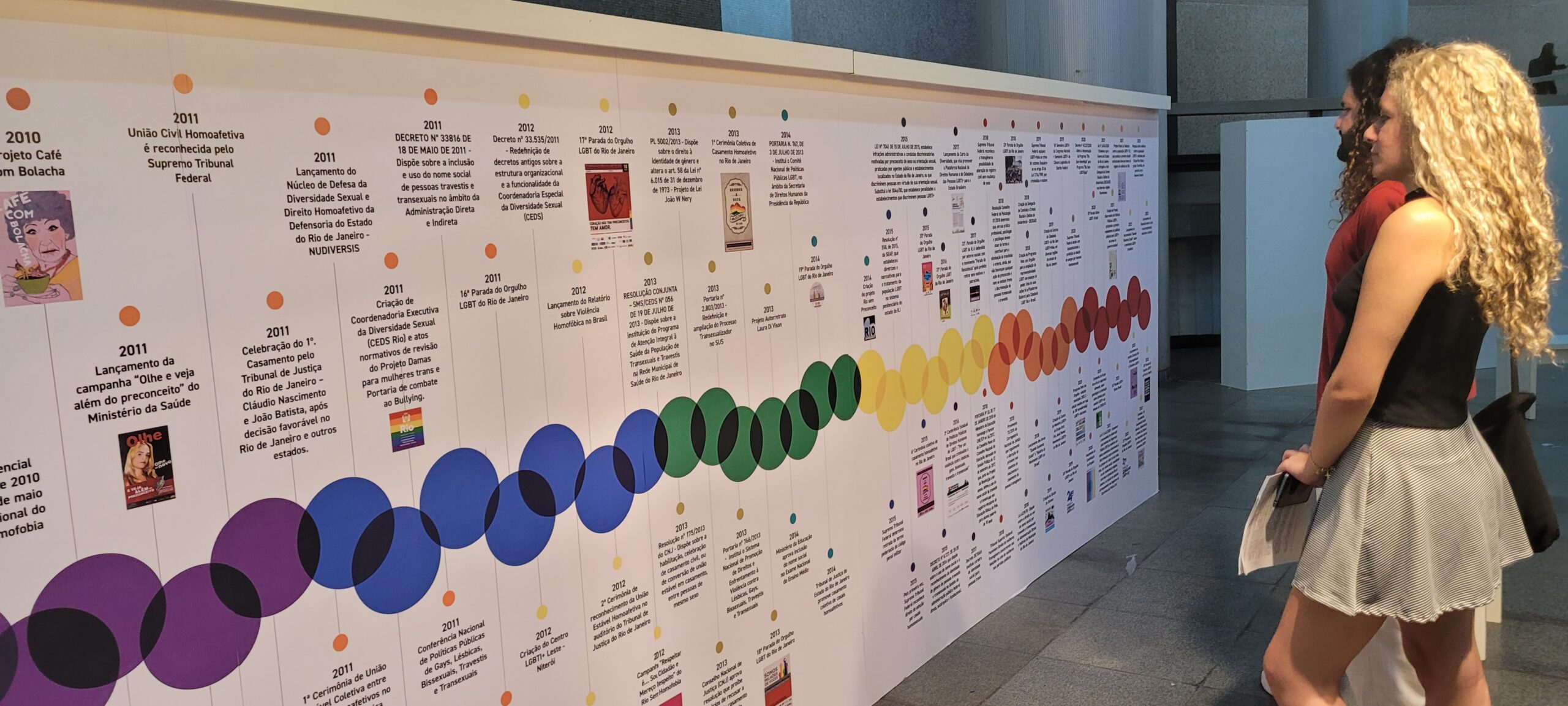

Negriny Venture, 45 years old, non-binary person, makeup artist, and winner of a beauty contest in the transforming world in 1996, talks about the importance of the Love and Struggle exhibition: “This event is important because it brings together characters from the artistic scene who started way back and made it possible for us to be here today, occupying this space and contributing to the culture of Rio de Janeiro”.
She ends by mentioning some names of very important people from the past who are part of the exhibition, such as Claudia Celeste, Rogéria, Elaine Parker, Suzi Brasil, Luana Muniz, Isabelita dos Patins, Alana Silva, and others.
Coluna da Neuza interviewed some visitors who also spoke about how important the exhibition is in terms of representation of the LGBTQIA+ community.
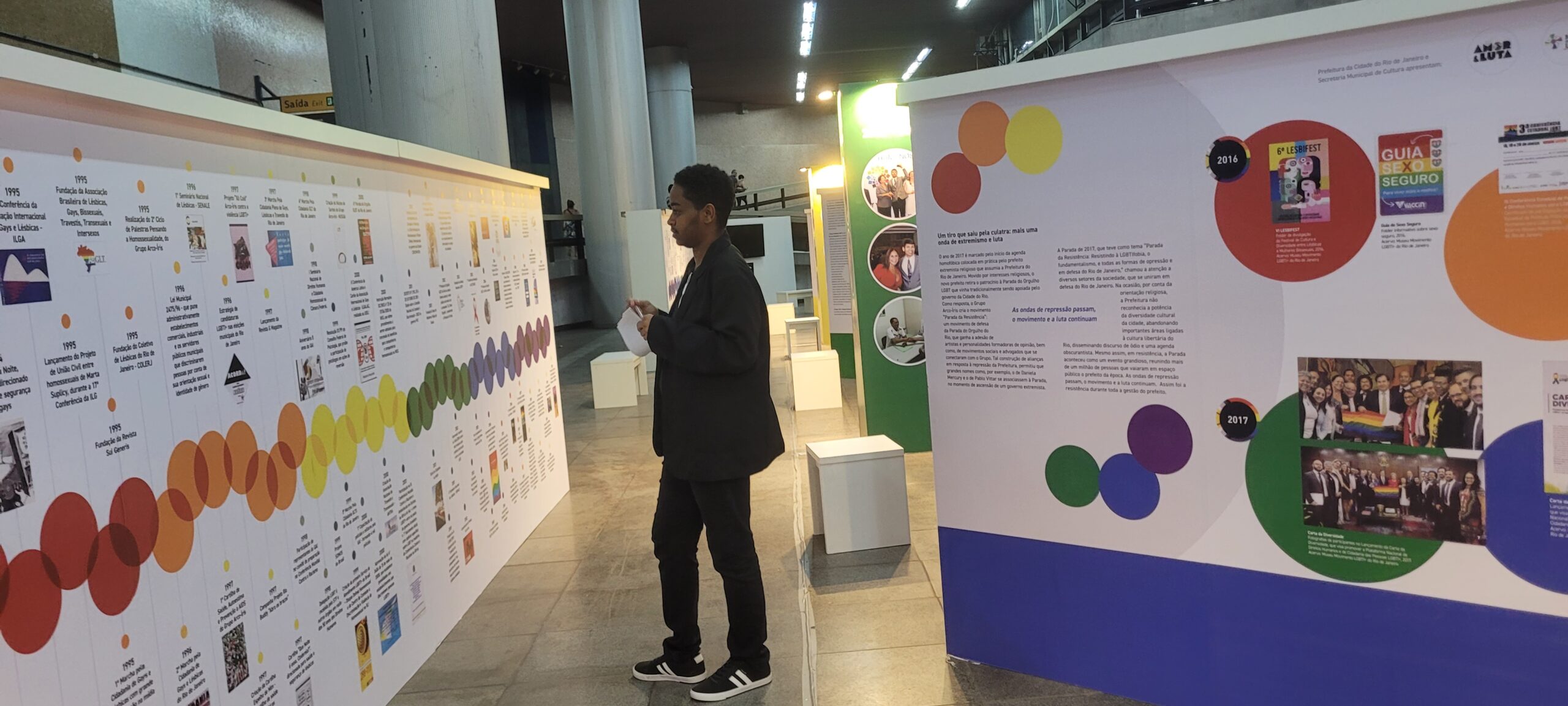

Below are some testimonials
“This exhibition is important because we can learn about our history, the history of the LGBT movement, which is a history of resistance. Understand how things got to where they are. We have already won many rights, but to achieve these many rights, many people fought before us. Looking at this exhibition, we can follow the struggles, and the movements that took place; This is important for LGBT or non-LGBT people, who are younger, to understand how this whole process has worked so far, and to understand that having rights is a constant struggle, because we are losing and winning all the time. With the exhibition’s timeline, we can get an overview of our history, understand it, and become stronger to continue fighting.”
Kai Lopes, 27 years old, Libras interpreter, trans, non-binary, bisexual person
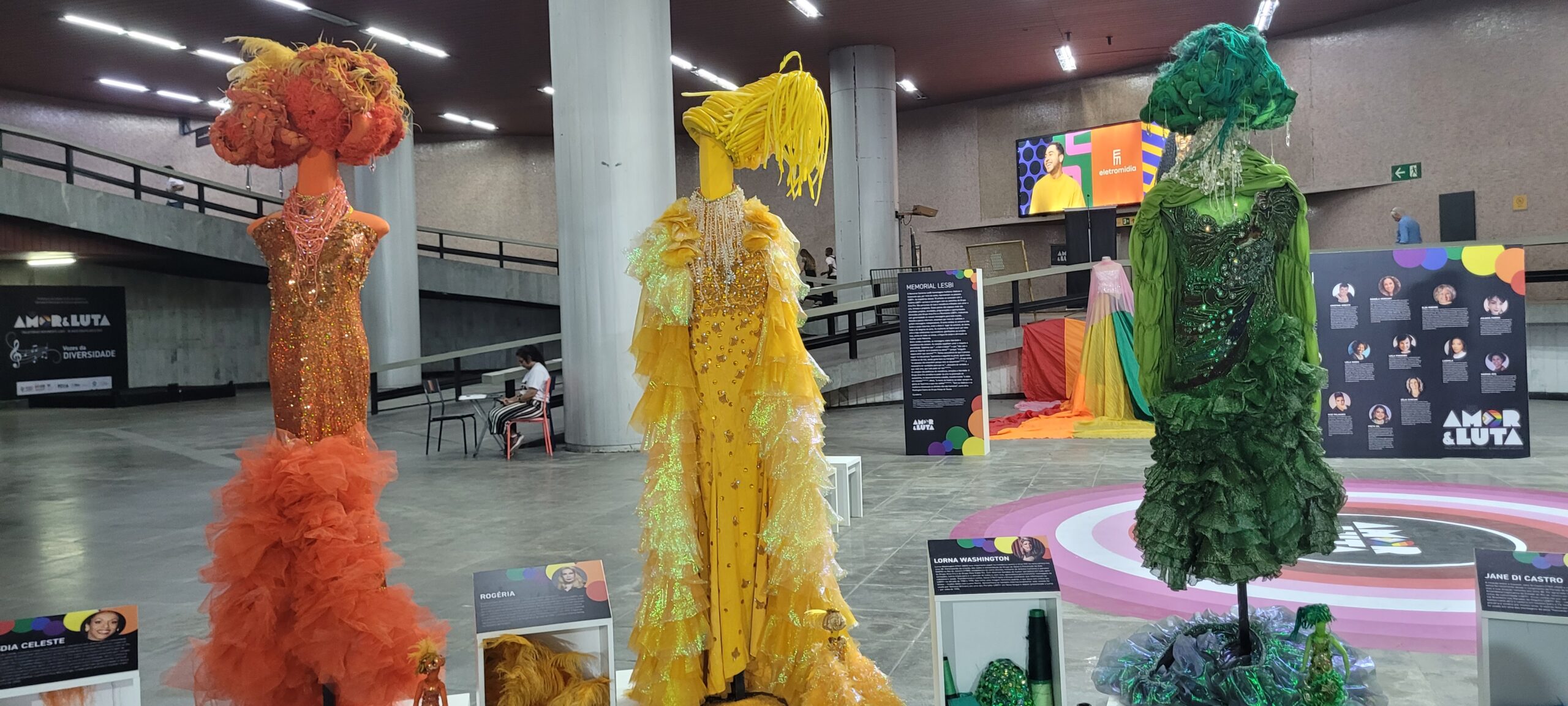

“Since I was 12 years old, I always knew that I was equally attracted to men and women. I discovered myself when I was 12 and this type of exposure that is growing now, appearing a lot, is very important for the community and our visibility. As I didn’t have much of that before, I stopped, stopped, stopped. The good thing is that now we are noticed, even if it is not in a completely good way, as we want, but now we have a voice. We were able to speak, express ourselves.”
Gisele, 19 years old, pansexual
“I think it’s cool to have an exhibition like this in a subway station like Carioca, I think it’s more accessible. We have exhibitions in museums, but sometimes people don’t know about them or can’t pay for them and here it’s free. So, I think that many people can come here, see the exhibition, and learn more about the LGBTQIA+ struggle, people should come to learn more and remove some of the prejudiced image they have because people are prejudiced and, sometimes, because you don’t know, right? Maybe people seeing this exhibition will understand a little more and realize that these people have been fighting for decades trying to gain rights.”
Júlia, 21 years old, cisgender
“I think this space is very important because it allows us to have access to knowledge that we don’t have, in a more sectional way, such as in schools, in the family, etc. Normally people are very prejudiced because they don’t know anything. I think this space also allows us to have a little contact with a struggle that has been going on for a long time, decades and that is being updated. I think Arco-Iris is an expression of that. Having an exhibition with this theme is very important, very current”
Isabela, a trans woman at the beginning of her transition
Like this initiative? Find out more about the Love and Struggle exhibition
In addition to the exhibition, you, as a visitor, will be able to participate in debate tables, seminars, conversation circles, book and magazine launches, shows, guided tours, and screenings of short films and documentaries!
What are you waiting for?
The event is taking place at the Carioca Metro Station, in the center of Rio.Indicative rating: free
Opening
hours: Monday to Monday, from 9 am to 9pm, until December 17th.
For more information click here.
